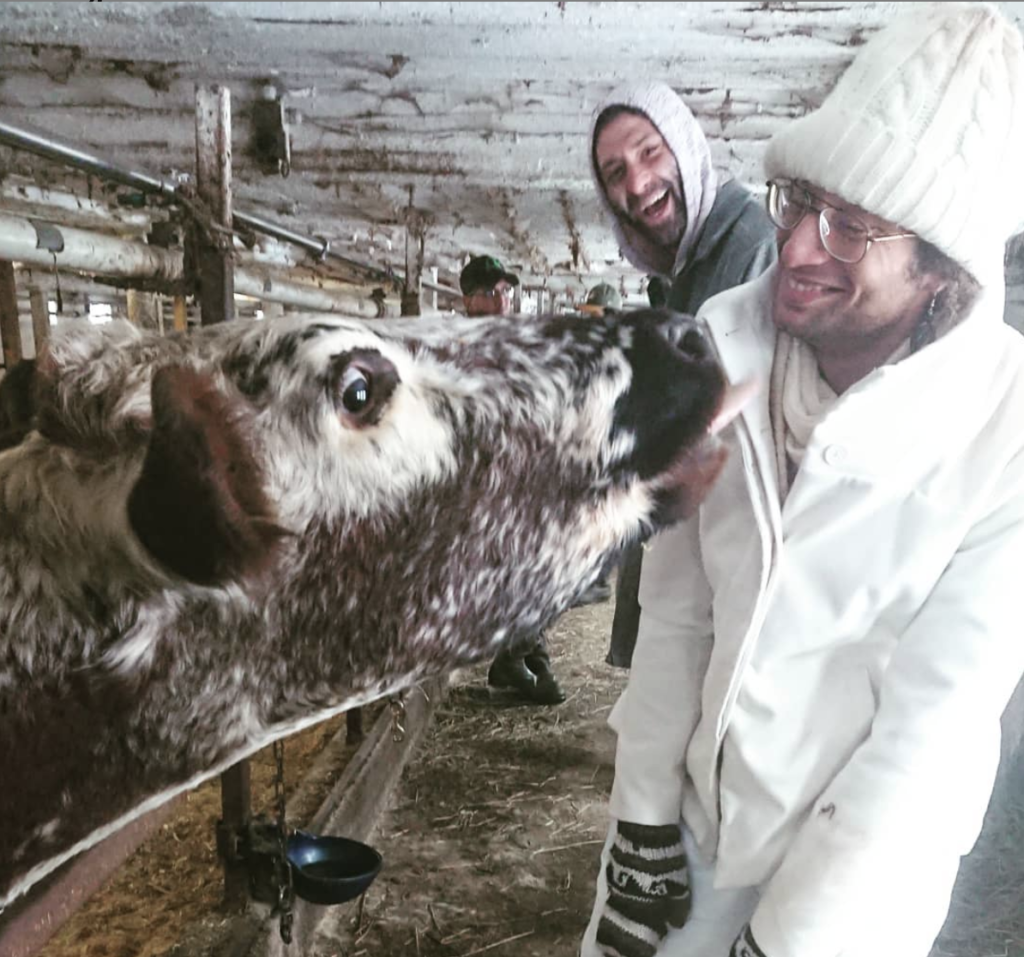
I know what you’re thinking. Yes, I got those whites clean after the farm visit. Bleach, borax and washing soda are the holy trinity of laundry.
Back to what we’re actually supposed to be talking about. I’m returning to school at CityTech to open a new chapter in my life. I want to leverage the farm-to-table model of culinary institutions like Blue Hill at Stone Barns, Noma, and Fäviken to revive the Black Alabama Gulf Coast cuisine that saved my life on countless occasions, and breathe vibrancy into a dwindling, aging farming community. My work at Consider Bardwell Farm as a cheesemonger throughout the New York City introduced me to the diversity of people, foodways, and farms that New York holds.
Consider Bardwell introduced me to how farmers that make milk to spec for a raw milk cheese producer can afford to treat their animals better than the market will bear for conventional producers. This is by necessity. If a cow gets into some silage— fermented hay, that is — the bacterial communities in the hay will overtake the cultures introduced in the cheesemaking vat and ruin a raw milk cheese. Since hay is more expensive than silage farmers can charge a premium to the cheese producer and can be sheltered from the volatility of the pasteurized milk for human consumption market. Put simply, there’s a way that doing things the slow, stupid, hard but worthy way can turn a community around.
Where there was a listeria outbreak at Consider Bardwell, I turned to work at Fleisher’s Butcher Shop. Fleisher’s was one of the first shops to reintroduce whole animal butchery to New York City. It was a blessing to be able to watch the butchers at work. I started as a monger gradually picking up skills as I went: learning to use the deli slicer, take skins off of pork trim for dog treats, cut a chicken in to pieces, spatchcock a chicken, debone a chicken, debone a lamb shank, sharpen a knife to a razor’s edge.
The pandemic, racial insensitivity, and a handsy manager cut my time at Fleisher’s short. I still would like to learn all the breaks that a fully competent butcher would know, and expand my knowledge of charcuterie. One of the highlights of my time there is when the lead butcher Britt, allowed me to spend 6 hours on shift making Cajun Boudin Blanc as an R&D project. Though the rice in it meant it couldn’t be sold in shop, the ability to be paid make a food I hadn’t tasted in 5 years since leaving home in a professional shop still brings tears to my eyes.
After the pandemic, it became clear to me that working in the hospitality industry was the path that I was meant to tread in this life. I love working on farms, with food, and with good people. I’m so excited to make y’all my gumbo and explore the hospitality industry. I can’t wait to own my own restaurant one day!




Leave a Reply